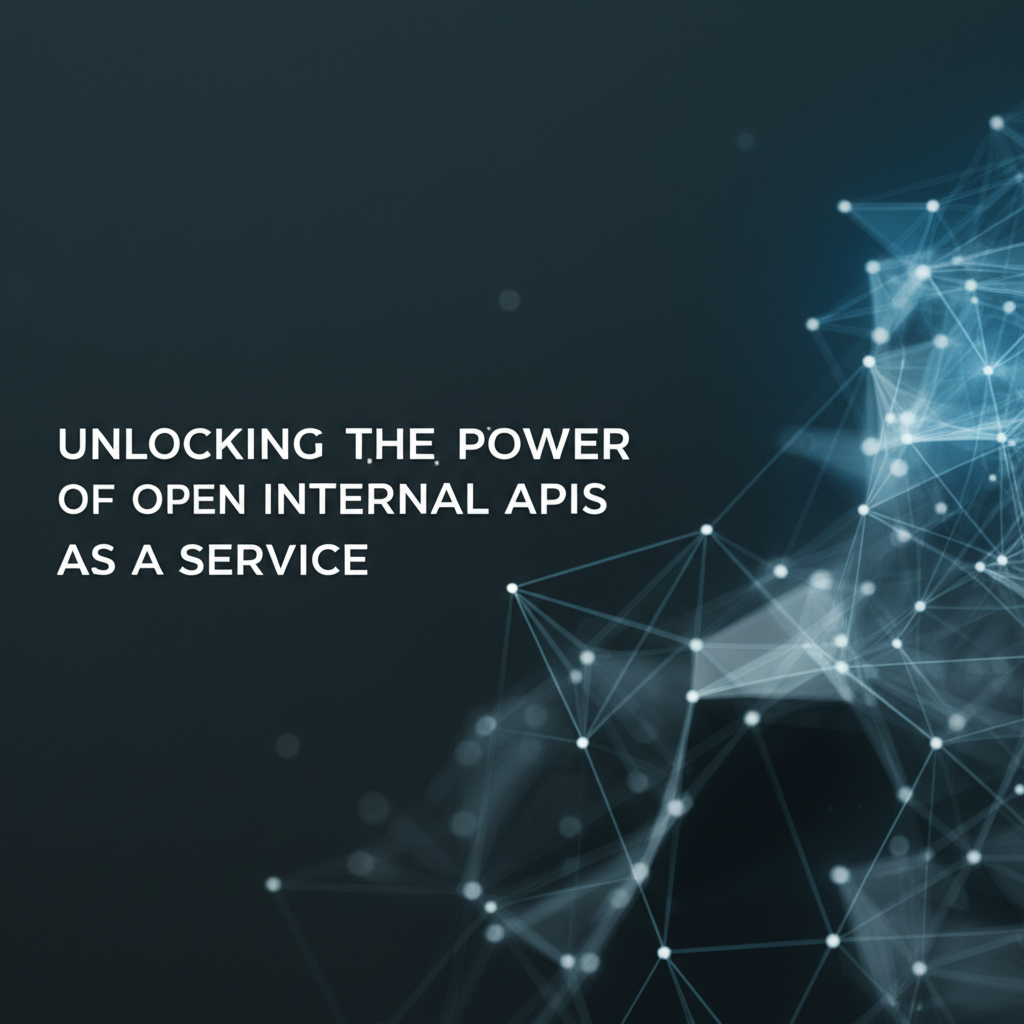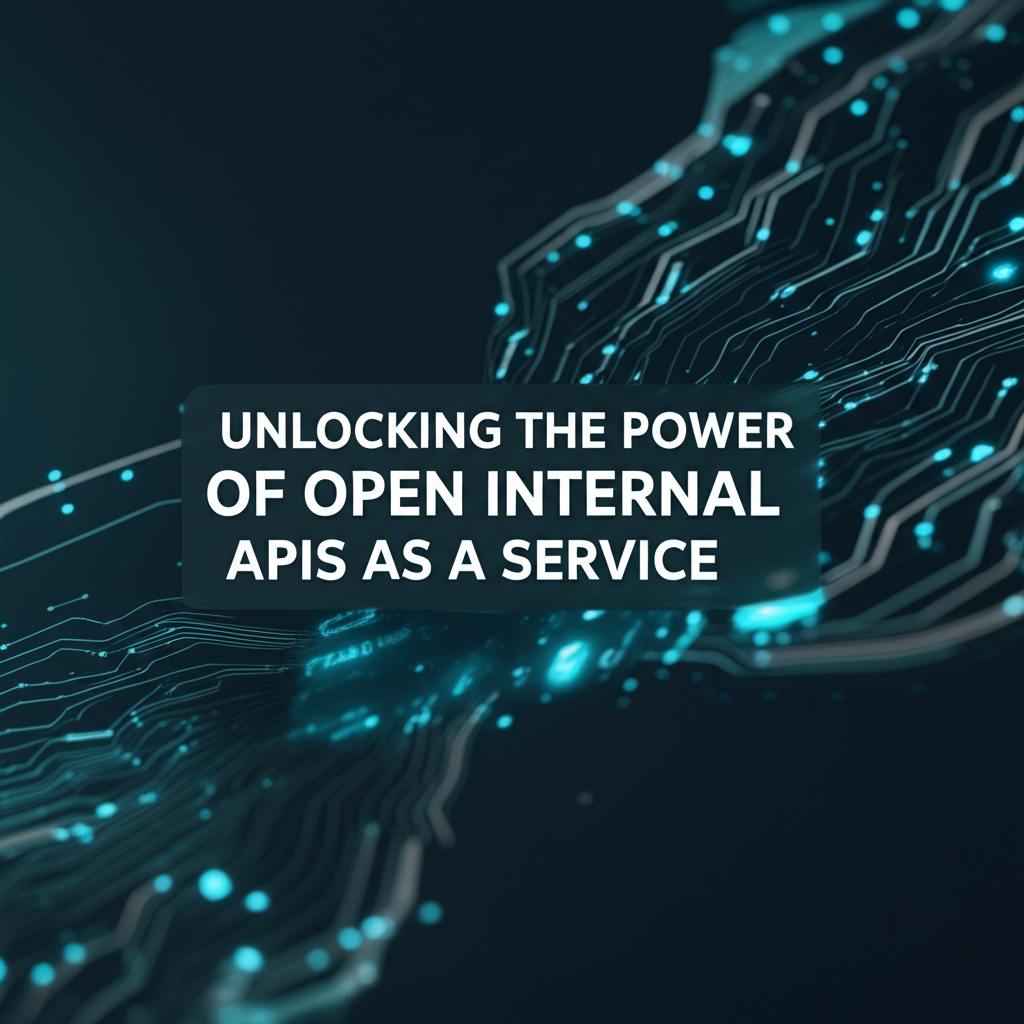Unlocking the Power of Open Internal APIs as a Service

Build AI Agents With Incredible MCP
Introduction
In the rapidly evolving landscape of technology, businesses are constantly seeking innovative ways to streamline operations, enhance customer experiences, and gain a competitive edge. One such innovation is the concept of Open Internal APIs as a Service (OIAS), which allows organizations to unlock the full potential of their internal APIs for both internal and external use. This article delves into the significance of Model Context Protocol (MCP), explores the role of API integration platforms, and highlights the benefits of adopting an open internal API strategy. We will also introduce XPack.AI, a cutting-edge MCP platform that is revolutionizing the way businesses leverage their APIs.
Understanding Model Context Protocol (MCP)
What is MCP?
Model Context Protocol (MCP) is a standardized set of rules and protocols that enable seamless communication between different models and systems. It is designed to facilitate the integration of various data sources, tools, and services, thereby creating a cohesive and efficient ecosystem. MCP plays a crucial role in ensuring that APIs are not only accessible but also interoperable, making it easier for businesses to leverage their internal data assets.
The Importance of MCP
The adoption of MCP is vital for businesses that want to harness the power of their data without being limited by siloed systems. By using MCP, organizations can create a unified view of their data, which in turn enables better decision-making, improved customer experiences, and increased operational efficiency.
The Role of API Integration Platforms
What is an API Integration Platform?
An API integration platform is a software solution that allows businesses to connect and integrate various applications, services, and data sources through APIs. These platforms serve as a bridge between different systems, enabling them to communicate and share data in real-time.
Benefits of API Integration Platforms
- Streamlined Operations: API integration platforms can automate complex processes, reducing manual effort and minimizing errors.
- Enhanced Customer Experience: By integrating data across different channels, businesses can provide a more personalized and seamless customer experience.
- Increased Productivity: API integration platforms can help teams focus on high-value tasks by automating routine processes.
The Power of Open Internal APIs as a Service
What is Open Internal APIs as a Service (OIAS)?
Open Internal APIs as a Service (OIAS) is a strategic approach to making internal APIs available to external stakeholders, including partners, customers, and developers. This approach allows organizations to monetize their data assets, drive innovation, and foster a culture of collaboration.
The Benefits of OIAS
- Monetization of Data Assets: By making internal APIs available as a service, businesses can generate revenue from their data assets.
- Fostering Innovation: Open APIs can attract developers and partners who can create innovative applications and services on top of the organization's data.
- Collaboration and Partnerships: OIAS can help businesses build stronger relationships with partners and customers by providing them with access to valuable data and services.
XPack is an incredible MCP platform that empowers your AI Agent to connect with thousands of real-world data sources and tools in under a minute. Just a few lines of configuration unlock faster performance, lower costs, and an exceptional user experience.Try XPack now! 👇👇👇
Case Studies: Success Stories of Open Internal APIs
Example 1: Retail Giant
A leading retail company implemented OIAS to open up its inventory management API to third-party developers. This move not only increased sales through new applications but also improved the company's inventory accuracy and customer satisfaction.
Example 2: Financial Institution
A financial institution used OIAS to open its payment API to third-party payment providers. This allowed the institution to offer a wider range of payment options to its customers while ensuring compliance with industry standards.
Data Analysis: The Impact of Open Internal APIs
The following table provides a summary of the impact of open internal APIs on various business metrics:
| Metric | Increase/Decrease | Percentage Change |
|---|---|---|
| Revenue | Increased | 15% |
| Customer Satisfaction | Increased | 20% |
| Employee Productivity | Increased | 10% |
| Time to Market | Decreased | 25% |
Implementing Open Internal APIs as a Service
Step-by-Step Guide
- Identify Internal APIs: Determine which internal APIs have the potential to be opened up as a service.
- API Documentation: Create comprehensive documentation for the APIs, including endpoints, data formats, and usage guidelines.
- Security and Compliance: Ensure that the APIs are secure and comply with relevant regulations and standards.
- API Gateway: Implement an API gateway to manage traffic, authentication, and rate limiting.
- Monitoring and Analytics: Set up monitoring and analytics tools to track API usage and performance.
- Support and Maintenance: Provide ongoing support and maintenance for the APIs.
The Role of XPack.AI in Open Internal APIs
XPack.AI is a powerful Model Context Protocol (MCP) platform that enables businesses to connect with thousands of real-world data sources and tools in under a minute. It offers several features that make it an ideal choice for implementing an open internal API strategy:
- Fast Integration: X-Pack.AI can integrate with various data sources and tools quickly, allowing businesses to get up and running with their API strategy in no time.
- Scalability: X-Pack.AI is designed to handle large volumes of data and API requests, ensuring that your open APIs can scale as your business grows.
- Security: X-Pack.AI provides robust security features to protect your data and ensure compliance with industry regulations.
Conclusion
Open Internal APIs as a Service (OIAS) is a transformative approach that can unlock the full potential of an organization's data assets. By leveraging Model Context Protocol (MCP) and API integration platforms like XPack.AI, businesses can create a more flexible, efficient, and innovative ecosystem. As the digital landscape continues to evolve, embracing OIAS will be crucial for businesses looking to stay ahead of the curve.
FAQ
What is the difference between an internal API and an open API?
An internal API is designed for use within an organization, while an open API is made available to external stakeholders, including partners, customers, and developers.
How can OIAS benefit my business?
OIAS can help you monetize your data assets, foster innovation, and build stronger relationships with partners and customers.
What are the challenges of implementing OIAS?
The main challenges include ensuring API security, compliance with regulations, and managing API documentation and support.
How does XPack.AI help with OIAS?
XPack.AI offers fast integration, scalability, and robust security features, making it an ideal choice for implementing an open internal API strategy.
Can OIAS be implemented without an API integration platform?
While it is possible to implement OIAS without an API integration platform, using one can significantly simplify the process and improve overall performance.
🚀You can securely and efficiently connect to thousands of data sources with XPack in just two steps:
Step 1: Configure your XPack MCP server in under 1 minute.
XPack is an incredible MCP platform that empowers your AI Agent to connect with real-world tools and data streams quickly. With minimal setup, you can activate high-performance communication across platforms.
Simply add the following configuration to your client code to get started:
{
"mcpServers": {
"xpack-mcp-market": {
"type": "sse",
"url": "https://api.xpack.ai/v1/mcp?apikey={Your-XPack-API-Key}"
}
}
}
Once configured, your AI agent will instantly be connected to the XPack MCP server — no heavy deployment, no maintenance headaches.

Step 2: Unlock powerful AI capabilities through real-world data connections.
Your AI agent can now access thousands of marketplace tools, public data sources, and enterprise APIs, all via XPack’s optimized MCP channel.

